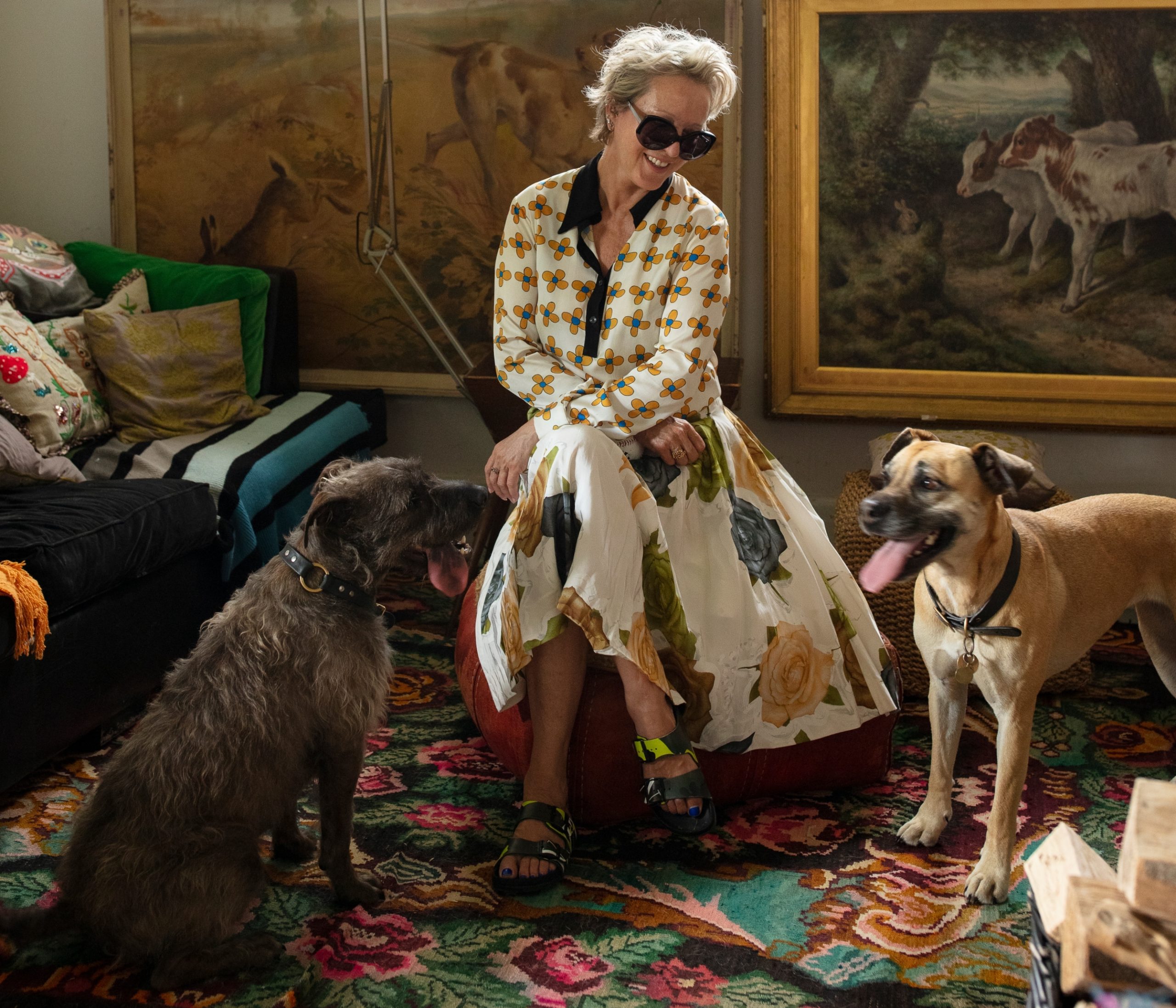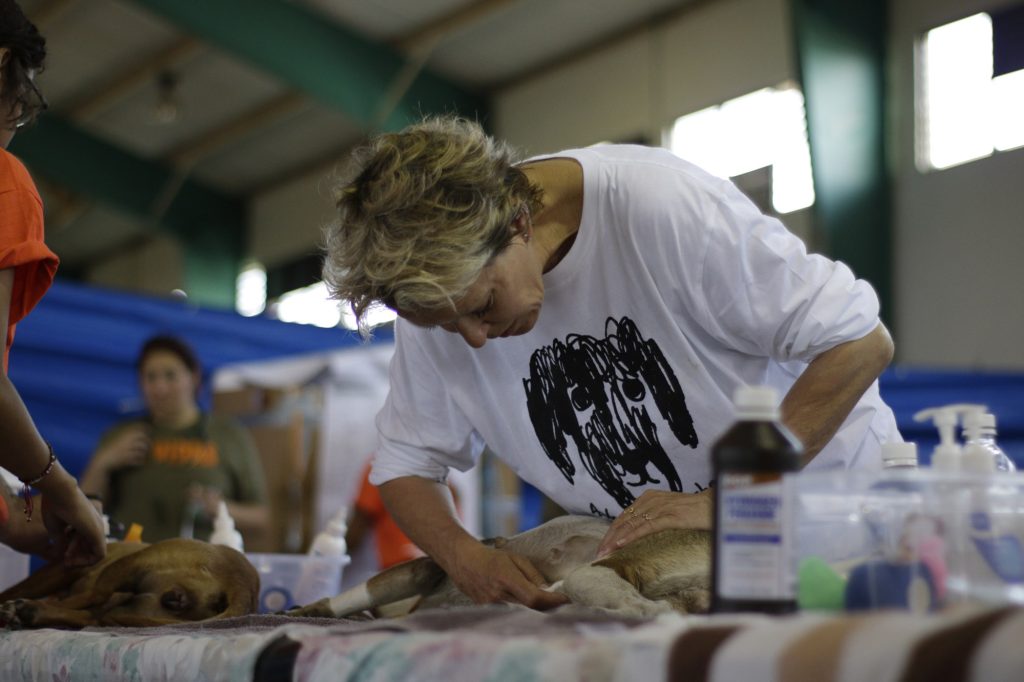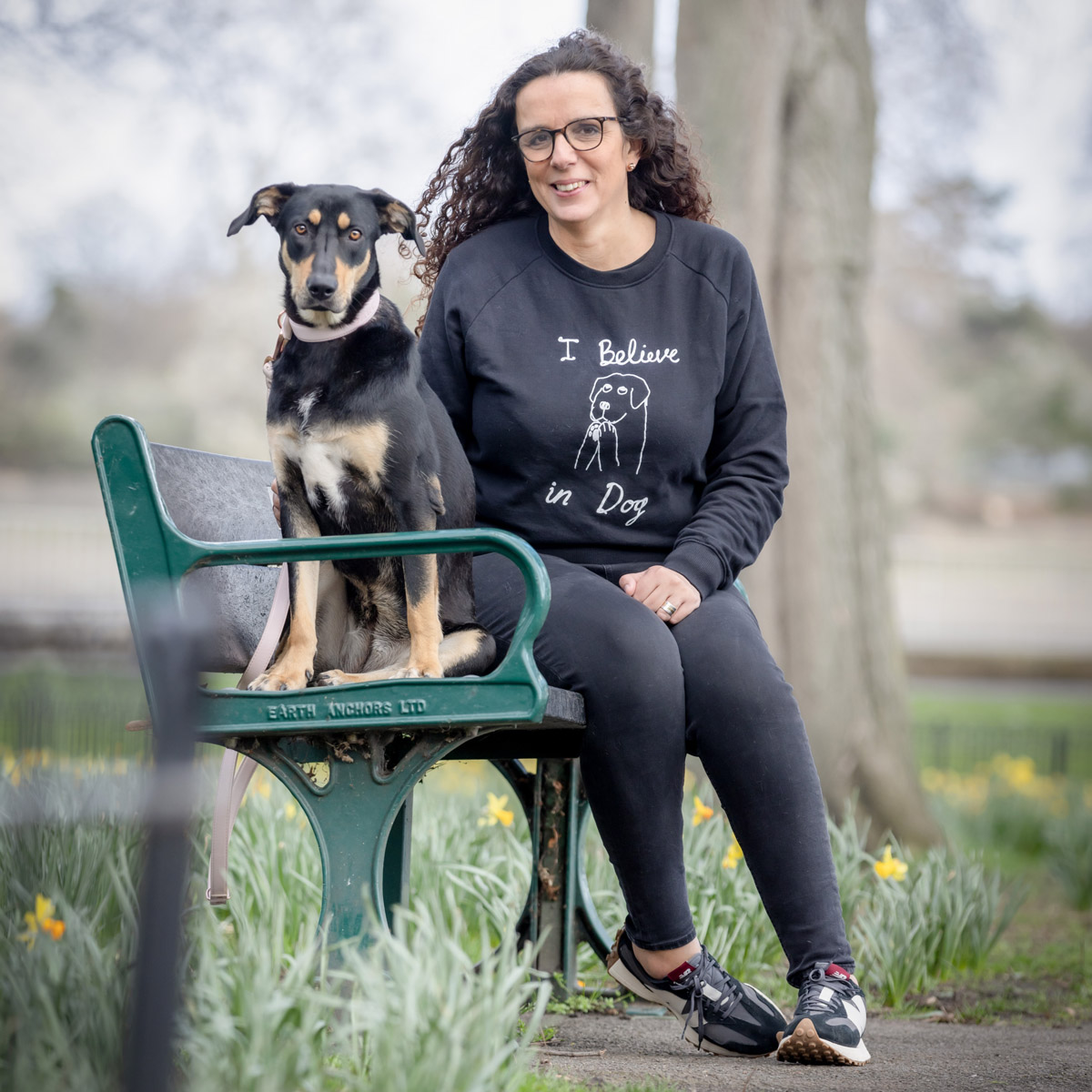
Nikki Tibbles’ love for dogs has shaped her life. Raised among rescues, she inherited a deep compassion for animals from her parents, one that would define her life’s work.
Before founding Wild at Heart Foundation, Nikki’s devotion to dogs grew through her travels across India, Sri Lanka, Thailand, Puerto Rico, and South America. What began as holidays became rescue missions, feeding, caring for, and organising veterinary support for street dogs. Yet, the sheer scale of suffering was overwhelming.
As a renowned florist, Nikki’s travels exposed her to the global plight of free-roaming dogs. A turning point came when she rescued two abandoned puppies, Rose and Lily, in Puerto Rico. Realising that individual rescues weren’t enough, she founded Wild at Heart Foundation in 2015, initially focusing on rehoming. Over time, the charity shifted to prioritising sterilisation, welfare, and education, key to preventing suffering at its source.
Officially registered in May 2015, the Foundation is funded by public donations, fundraising events, and corporate support. The mission remains steadfast: transforming the lives of free-roaming dogs worldwide, one dog at a time.






We believe in the transformative power of dogs. They lift our spirits, keep us active, and make a house a home. As loyal companions and protectors, they give us unconditional love. In return, we are committed to helping them when they need it most.
Since 2015, your generous support has driven remarkable progress:
Today, we collaborate with seven global partners across Ukraine, Romania, Greece, India, Mexico, and the UK, leading efforts to reduce free-roaming dog populations, save lives, and inspire compassionate change.

Operations Director
Olivia, a lifelong dog lover and Wild at Heart Foundation adopter, joined the team in 2017, advancing to Operations Director in 2024. She is dedicated to driving the charity’s mission forward and improving the welfare of free-roaming dogs globally.

Trustee
Marisha is a chartered accountant in International Development specialising in financial planning, risk management, and project leadership. She became dedicated to the Wild at Heart Foundation after her rescue dogs, Sheru and Helios, arrived from Cyprus in 2018.

Accounts
Krishty, a part-qualified accountant with seven years of experience, ensures financial accuracy and supports the Foundation’s mission.

Social Media & Marketing Assistant
Layla, with a background in conservation communications, recently joined Wild at Heart Foundation, focusing on content creation, campaigns, and community engagement to drive action for free-roaming dogs worldwide.

A long-time supporter of Wild at Heart Foundation, David, along with his rescue dog Dora, is a wonderful ambassador for the joy of giving a dog in need a loving home. His ongoing support means the world to us, and we’re proud to have him as part of the Wild at Heart Foundation family.

Karen connected with Wild at Heart Foundation in 2016 after adopting Betty from Bosnia, later welcoming Marley from Lesvos and Phoebe, a resilient three-legged pup from Athens. Her deep devotion to dogs is truly inspiring, and we’re proud to have her as part of our community.

Lee and his wife Yolande have been dedicated supporters of Wild at Heart Foundation since adopting Ziggy in 2017. Their unwavering commitment extends far beyond their own dogs, and we are truly grateful for their dedication and generosity.

Estee has been a fantastic supporter of Wild at Heart Foundation, helping to raise awareness and champion our fundraising efforts. She’s also adopted her very own WAHF dog, Effie — making her support even more special!

Anna Webb is a dog behaviour and wellness expert who regularly features on national radio, TV, and in the press. She also hosts A Dog’s Life, a thought-provoking podcast exploring all aspects of modern dog ownership. Passionate about animal welfare, Anna and her re-homed English Toy Terrier, Mr. Binks, are inspiring advocates for our mission and work.

Madeleine Spencer is a journalist and broadcaster, currently Freelance Beauty and Wellness Editor at the Evening Standard. She explores beauty rituals on her podcast, Beauty Full Lives. Madeleine adopted her beloved Wild at Heart Foundation rescue Beagle/Pointer, Monty, in 2015, sharing eight joyful years together until he died in 2023.

Kate, a devoted rescue dog owner and author of the Sunday Times bestseller Lost Dog, has been a passionate supporter for many years, generously contributing through book readings and advocacy. Her powerful writing has helped raise awareness of the plight of rescue dogs worldwide, and we’re truly grateful for her support.

A dedicated advocate for rescue dogs, Teresa uses her award-winning blog The Dogvine to champion our mission and raise awareness. Her passion is deeply personal and inspired by her beloved companions Piccolina from Greece, and the late Belinha and Moleque from Brazil.

Mike and Rebecca, owners of The Country Dog Hotel in Somerset, have supported Wild at Heart Foundation since 2018, volunteering at events, donating prizes and raising awareness among their clients. Their generosity and dedication make them invaluable allies, and we’re truly grateful for their support.

May Wong, a talented interior designer and dog influencer, found her love for dogs through her first companion, Miss Darcy, the inspiration behind her popular blog Miss Darcy’s Adventures. Later joined by George, a Hungarian rescue, and Lulu, a survivor of China’s dog meat trade, May has become a passionate advocate for compassion towards free-roaming dogs worldwide.

Born in India and raised around street dogs and rescued pets, Anita’s love for dogs started early. A chance meeting with our founder, Nikki, sparked a lasting bond, and Anita and Elmo proudly support the Foundation whenever they can.

Andrew’s photography journey began volunteering in rescue shelters, capturing the sweet souls in need of homes. Now a canine photographer, he celebrates the love and bond between dogs and humans. Passionate about supporting dog charities worldwide, we’re honoured to have Andrew as a valued collaborator.

Milo is passionate about keeping city dogs active, healthy, and happy through his London-based business offering tailored adventure walks and runs for high-energy dogs. A true friend of the Foundation, he goes above and beyond to support our mission.

Cat is a talented photographer, devoted Wild at Heart Foundation adopter, and passionate advocate for our mission. She generously lends her skills to capture stunning images from our trips and events, helping amplify our cause. We’re honoured to have Cat as both a valued collaborator and cherished friend.
We are a UK-registered charity (#1161695) with a global reach, collaborating with international partners and leading projects worldwide.
Volunteering with Wild at Heart Foundation lets you support our mission to help free-roaming dogs live healthy, happy lives. Stay updated on volunteer opportunities by joining our volunteer mailing list.
We closed our adoption department in 2022 to focus on tackling the root causes of the free-roaming dog crisis through sterilisation, welfare, and education. For dog adoption, please contact a reputable local rescue centre specialising in rehoming.
Setting up a regular gift to Wild at Heart Foundation is one of the most impactful ways to support our mission, helping fund essential costs like sterilisation, food, and vet care for free-roaming dogs. Visit our donate page to contribute today.
We appreciate donations in any form that suits you:
Cheque:
Make payable to ‘Wild at Heart Foundation’ and send to:
52 Linford Street, London, SW8 4UN, UK.
Cash:
If donating cash (e.g. from fundraisers), please deposit it into your personal account and donate via our website to enable Gift Aid claims.
Bank Transfer:
Account Name: Wild at Heart Foundation
Account Number: 54488121
Sort Code: 40-06-02
Please email us after your transfer so we can thank you!
We understand that circumstances can change. If you need to cancel your regular donation, please contact us at info@wildatheartfoundation.org, and we will process your request promptly.